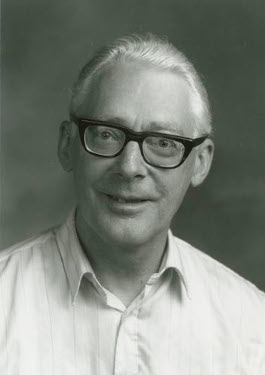Ole-Johan Dahl facts for kids
Quick facts for kids
Ole-Johan Dahl
|
|
|---|---|
 |
|
| Born | 12 October 1931 Mandal, Norway
|
| Died | 29 June 2002 (aged 70) Asker, Norway
|
| Alma mater | University of Oslo |
| Known for | Simula Object-oriented programming |
| Awards | Turing Award (2001) IEEE John von Neumann Medal (2002) |
| Scientific career | |
| Fields | Computer science |
| Institutions | Norwegian Computing Center University of Oslo |
Ole-Johan Dahl (born October 12, 1931 – died June 29, 2002) was a brilliant computer scientist from Norway. He was a professor at the University of Oslo. Many people consider him one of the main creators of Simula and object-oriented programming, working alongside Kristen Nygaard. These ideas changed how computer programs are made.
Contents
Early Life and Studies
Ole-Johan Dahl was born in Mandal, Norway. When he was seven, his family moved to Drammen. During World War II, when he was thirteen, his family had to flee to Sweden because of the German occupation of Norway.
After the war ended, Dahl went to the University of Oslo. There, he studied mathematics, focusing on numbers and calculations. This helped him prepare for his future work in computers.
Developing Computer Programming
In 1968, Dahl became a full professor at the University of Oslo. He was known as a great teacher and a smart researcher. He worked on a very important book called Structured Programming in 1972. This book helped people understand how to build computer programs in a clear and organized way.
As his career continued, Dahl became very interested in formal methods. This means using strict mathematical rules to make sure computer programs work exactly as they should. He was good at both the practical side of programming and the deep mathematical ideas behind it.
The Birth of Object-Oriented Programming
Ole-Johan Dahl is seen as Norway's most important computer scientist. In the 1960s, he and Kristen Nygaard came up with the first ideas for object-oriented programming (often called OO programming). They did this at the Norwegian Computing Center.
Their work led to the creation of the Simula programming languages (Simula I and Simula 67). Simula was first made to help with simulations, which are like computer models of real-world things. It was built on another language called ALGOL 60.
Dahl and Nygaard were the first to create key ideas like:
- Class: A blueprint for creating "objects."
- Subclass: A class that gets features from another class.
- Inheritance: When one part of a program gets abilities from another part.
- Dynamic object creation: Making new parts of a program while it's running.
An object is like a self-contained building block in a computer program. It has its own data and instructions (called methods). These objects are then combined to make a complete software system. Today, object-oriented programming is used everywhere in modern software development. Many popular programming languages, like C++ and Java, use these ideas.
Awards and Recognition
For his groundbreaking work, Ole-Johan Dahl received the prestigious Turing Award in 2001, sharing it with Kristen Nygaard. The Turing Award is one of the highest honors in computer science.
He also received the Institute of Electrical and Electronics Engineers (IEEE) John von Neumann Medal in 2002, again with Kristen Nygaard. In 2000, he was named Commander of the Royal Norwegian Order of St. Olav, a high honor in Norway.
The Association Internationale pour les Technologies Objets later named the Dahl-Nygaard Prize after him. This prize celebrates important contributions to object-oriented programming.
See also

- In Spanish: Ole-Johan Dahl para niños
 | DeHart Hubbard |
 | Wilma Rudolph |
 | Jesse Owens |
 | Jackie Joyner-Kersee |
 | Major Taylor |

